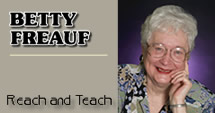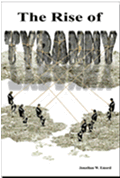CHRISTIANITY BEGAN LOSING THE CULTURE WAR IN THE 19th CENTURY
By
Betty Freauf
August 22, 2015
NewsWithViews.com
On
July 30th, Pastor Chuck Baldwin, a pastor himself, in
his article blames pastors for not standing up and taking a stand
early on when first prayer and Bible reading were expunged from our
schools back in 1962 and 1963 and then he mentions all the other assaults
against Christians right up to the most recent, the legalization of
same-sex marriage. But perhaps
the biggest  mistake,
he says, was when the church, which is the Bride of Christ entered into
an adulterous relationship with Caesar and put on the state’s
official wedding band otherwise known as the 501c3 non-profit, tax-exempt
organization status in 1954. “So in just a little over a short
half-century later, the Church has lost, not only the virtue of its
own spiritual institution, but also the virtue of the most fundamental
institution of all: Holy Matrimony.” Baldwin says this is how
the direct descendants of the Pilgrims, Puritans and Patriots became
so cowardly.
mistake,
he says, was when the church, which is the Bride of Christ entered into
an adulterous relationship with Caesar and put on the state’s
official wedding band otherwise known as the 501c3 non-profit, tax-exempt
organization status in 1954. “So in just a little over a short
half-century later, the Church has lost, not only the virtue of its
own spiritual institution, but also the virtue of the most fundamental
institution of all: Holy Matrimony.” Baldwin says this is how
the direct descendants of the Pilgrims, Puritans and Patriots became
so cowardly.
OBAMA IS A POST TURTLE
I have admired Baldwin’s courageous stands over the years but I have to take issue with him on his “a little over a short half-century later….” meaning since the sixties, I assume. In Samuel Blumenfeld’s 1981 book IS PUBLIC EDUCATION NECESSARY, he marvels how a small clique was able to accomplish so much in such a short period of time. Progressive Robert Owen, the father of British socialism, was instrumental in the Harvard elitists/Unitarian enlightened crowd to get control away from the private Christian schools and embrace instead our centralized public schools, uniformity of the curriculum through control of textbook selection to teaching training in the 1800s. The Harvard men among them typified in one way or another the revolt against the New England Puritanism who said mankind was depraved and needed a Savior. The Owenites in their quest in how to rid humanity of evil, dabbled into everything from Phrenology to the belief in Mother Nature that it did away with the notion of sin and innate depravity. A man suffered the consequence of his behavior when that behavior violated Natural Law.
Phrenology, was the new “science” of human nature developed by a German physician, Franz Joseph Gall who, in the course of his work with the insane became convinced that the brain was the organic seat of what we now call personality development.
These enlightened folks were the American cousins of a species commonly cultivated in England by the Fabian Society, because such individuals made Socialism appear attractive as well as respectable. They claimed the turtle as their symbol because of how slowly it moves.[1] Now we all know the turtle didn’t get up on the post by himself, he doesn’t belong up there; he doesn’t know what to do while he’s up there; he’s elevated beyond his ability to function and now we are learning who the educated statists were that put him up there in the first place. (Source unknown)
A REPUBLICAN LEGISLATOR ENDORSES PUBLIC SCHOOL EDUCATION
The way the Unitarians and their allies managed to manipulate the legislature to achieve their ends seemed almost conspiratorial. They saw nothing wrong in using private money and private planning to create changes in the state’s educational system which most of its citizens opposed. When they formed their “friends of education” they chose Horace Mann, a Republican legislator, considered today as the father of public education, as its Secretary. Mann, with his confederates in the Legislature, aided by the educational network centered at Harvard, and financially supported by several wealthy Unitarians, was able to use the levers of state power to their greatest advantage.[2]
ORTHODOX MINISTERS SPEAKS OUT
Of course, some of the orthodox were suspicious that the Unitarians were up to no good, and it wasn’t long before Mann found himself involved in his first real battle with the opposition. It all started in March 1838, when orthodox minister, Rev. Frederick A. Packard, recording secretary of the American Sunday School Union, sent a letter to Mann asking him if a particular book, John S. Abbott’s CHILD AT HOME would be suitable for the common school library Mann and the board of Education were planning to assemble. The idea of getting the Legislature to appropriate money to each common school for the establishment of a library was part of the Board’s general plan to upgrade the public schools and get some of its own cherished ideas into the heads of the pupils.[2] So this group was a century ahead of the 1919 Communist slogan which was “Give us one generation of small children to train to manhood and womanhood and we will set up the Bolshevist form for the Soviet Union.”
EARLY ON THE FIX WAS IN
The Board, mainly through the efforts of a Unitarian named Jared Sparks, then decided to select a group of books which it would recommend that the new libraries purchase. In addition, authors were to be commissioned by Sparks to write a series of inspirational biographies for the young, and arrangements were to be made with a “friendly publisher” to bring out all these books in special inexpensive editions for the libraries. When the books were finally ready, the Board took pains to point out that its only power was to recommend the books, not to force the common schools to buy them. Thus, even at that early stage of centralized state control of education, the inevitability of a conflict of interest arising between state educational officials and commercial arrangements such as publishing companies and newspapers controlled by them was already apparent.[2]
TEACHER TRAINING COLLEGES NEEDED
In the meantime, Mann got busy with his own lobby in the legislature expounding the virtues of the Prussian system and strongly urged the lawmakers to support the creation of teachers’ seminaries for the proper training (indoctrination) of public school teachers. But legislatures were reluctant to vote tax money for the training when private academies were doing the job at no cost to the taxpayers. Ironically, when there were no teachers’ colleges in existence even the worst common schools could teach children to read “very well” using intensive phonics and illiteracy was a rarity. Today, with more teachers’ colleges and stricter certification requirements, functional illiteracy among students is greater than ever
While it was obvious that the recommended selections would include many by Unitarian authors, Packard wanted to see how biased the board would be. It didn’t take him long to find out. Mann rejected the Abbott book on the grounds that it was too sectarian in content and that the law of 1827 forbade the use of sectarian books “favoring any particular religious tenent” in the public schools. Packard replied that the law also required that the common schools teach the “principles of piety,” and he asked Mann how these “principles of piety” could be taught “without favoring some particular religious tenet?”[2]
ON THE HORNS OF A DILEMMA
It was a dilemma that would remain an inherent part of secular state education right up to the present. But, back in 1838, Mann insisted that the Abbott book, as well as all of the other books used by the American Sunday School Union, were unsuitable for the common school libraries. For Mann, it was important to consolidate secularism’s capture of public education. There could be no compromise on the issue.[2]
CHRISTIANS TRY TO FIGHT BACK
Packard then brought up the matter before a meeting of the General Association of Massachusetts, the state’s largest organization of orthodox ministers, charging Mann with a sectarian bias of his own – in favor of Unitarianism. But the Association itself decided not to enter the controversy. For the next three months, Packard and Mann privately exchanged letters, each arguing his position. Packard then decided to take the controversy to the press and published his views in two articles in the NEW YORK OBSERVER. The first article, entitled “Triumph of Infidelity,” appeared in August 1838, and the second, directed in the form of an open letter to Dr. Herman Humphrey, orthodox president of Amherst College, appeared in October. The title of the first article was not without significance, for on July 15, 1838, Ralph Waldo Emerson had delivered his controversial Divinity School Address at Harvard, shocking even conservative Unitarians with its pantheism. To the orthodox, the liberal trend toward atheism was unmistakable.[2]
By addressing his second article to Dr. Humphrey in an open letter, Packard had hoped to enlist on his side one of the most respected and influential orthodox ministers in New England. The last thing the Board of Education wanted was to get into an argument with Dr. Humphrey. The controversy had already persuaded the Board’s one Episcopalian member, Edward Newton, to resign. While the Unitarians were not at all unhappy to see him go, they realized that there was a great danger to the movement in alienating the orthodox. So William B. Calhoun and Emerson Davis came to Mann’s rescue by writing letters to Humphrey and persuading him to remain silent. Davis also wrote to the editor of the OBSERVER, urging him to cut short Packard’s series of open letters to Dr. Humphrey. Meanwhile, Mann wrote in his journal, “They (the orthodox) shall not unclench me from my labors for mankind.”[2]
Undaunted, Packard then published a pamphlet entitled The Question, Will the Christian Religion be recognized as the basis of the system of Public Instruction in Massachusetts? The pamphlet was then reviewed favorably in the Boston RECORDER by Rev. Richard Storrs, orthodox minister of Braintree, who was convinced that the Board of Education had committed itself to “faults and fatal principles that the Common Schools can flourish and accomplish the end they aim at without the aids of Christianity.” Again, the Board persuaded Mann not to be drawn into an open controversy with the orthodox. So Mann wrote to Storrs privately, explaining his sincere intent to function within the limits of the School Law of 1827 which forbade the use of sectarian textbooks in the public schools. Storrs replied that he believed Mann to be sincere but nevertheless guilty of a “fundamental error” if he thought that “the intellectual and moral improvement” of the young was possible without religion. Storrs also questioned the alleged religious impartiality of a Board where all but three members belong to “that denomination which has done all in its power to crush orthodoxy throughout the Commonwealth.”[2]
In his article, Baldwin wondered how could the direct descendants of the Pilgrims, Puritans and Patriots become so cowardly? Well, while Mann maintained a public silence, his friends were able to defend his point of view in the press, nor did all of the orthodox come out against Mann. Many, in fact, supported his position. Someone had persuaded the conservatives that public education would be theirs to control once it became universal and it was the kind of wishful thinking that permitted many conservative educators and ministers to support a cause so completely dominated by liberals and so manipulated, albeit quietly, by covert socialists. The orthodox Protestant sects weren’t nearly as united in their views as were the liberal “friends of education.” Calvin Stowe’s laudatory report on the Prussian system had been reprinted by the Massachusetts Legislature in 1838. As an orthodox minister, his views helped persuade many of the orthodox to accept the Prussianization of American education which included compulsory education.[2]
CALVINISTS OUT NUMBERED BY 1838
The argument made by Stowe that a common ground could be found in the New Testament teachings to unite all of the different sects in the public schools on the matter of moral instruction was the notion that permitted most of the orthodox to go along with Mann and the new Board of Education. In addition, there was a liberalization trend within some of the orthodox sects. In Connecticut, for example, Rev. Horace Bushnell, influenced by the same German theologians and philosophers who had influenced the Unitarians, was discovering that he could unite Trinitarian doctrine with German idealism and religious intuition. It was quite possible to reject Calvinistic logic which said that man was depraved and in need of a Savior in favor of German intuition and still call oneself a Congregationalist. Only diehard Calvinists really knew what was going on, but by then, they were somewhat a small minority.
The truth is that, by 1838, Protestant theology was in a state of chaos, running the gamut from orthodox Calvinism to Emersonian pantheism. The intellectuals tended to be among the more extreme religious liberals, and socialism was the new doctrine attracting the interest of the enlightened.[1] And Satan had already won. We now have demonic Humanism as the public school religion.
|
|
GOD CANNOT ALTER THE PAST BUT HISTORIANS CAN
So the post Baldwin received on his Facebook page that said “None of these things (the evil, calamitous things happening in our country) could have been prevented, nor should they have been. All these things must come to pass before the Lord returns. In this world, nations rise and nations fall, and this one just happens to be falling right now” begging for the wrath of God. The past is an incomparable treasure, for it contains the true lessons of human experience. We can see who was right, who was wrong and who is suffering today from disobedience to the word of God.
Footnoted:
1.
Fabian Freeway – High Road to Socialism by Rose L. Martin ©
1968
2.
Why is Public Education Necessary? © 1981Samuel Blumenfeld (P.
166-169)
� 2015 Betty Freauf - All Rights Reserved














 Share
This Article
Share
This Article





